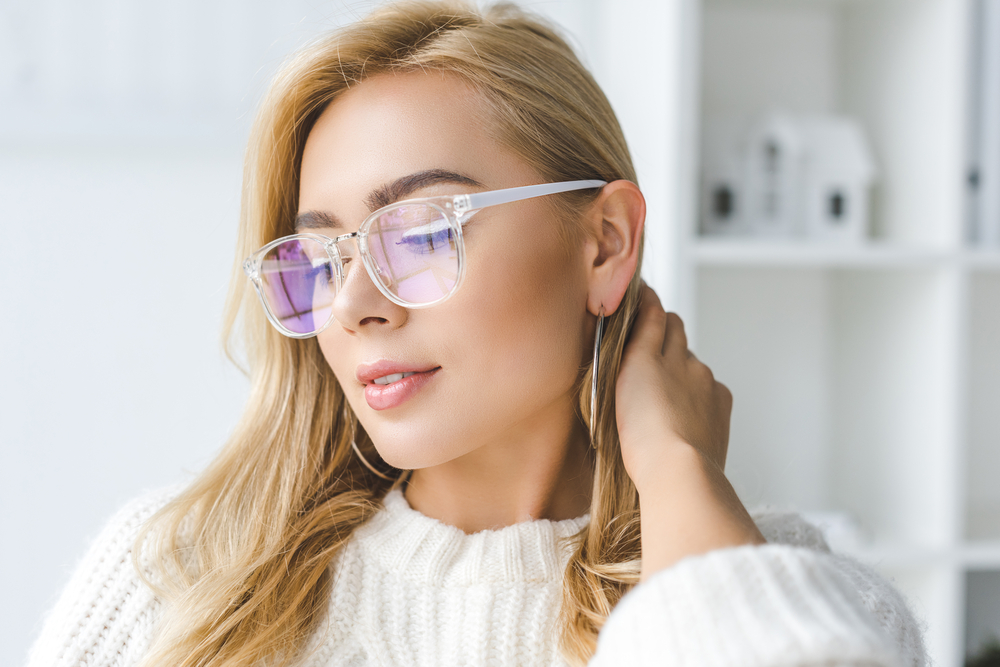
Light is a crucial part of the visual process. When it’s daylight or we are in an artificially lit room, light passes through the eyes to the retina, which sends messages to our brain to tell us what we can see. However, light doesn’t come without some risks.
Both UV light and solar blue light have the potential to cause significant damage to the health and condition of our eyes and our vision. For this reason, it’s important that if you find yourself in a situation where you are exposed to these types of light, you take positive steps to protect your eyes. Fortunately, there are a few options available. Here’s what you need to know about the effects of both types of light and how your eye doctor can help you to keep your eyes safe and protected.
About UV light
Most people have heard of UV or ultraviolet light. Emitted by the sun, UV light is a type of radiation and is the highest energy visible light that there is. This makes it higher energy and therefore more damaging than blue light. There are two types of UV light that can reach us – UVB and UVC. Each is a slightly different wavelength, but both can trigger cellular changes in the skin around the eyes as well as within the eyes themselves, putting unprotected people at risk of a range of potential effects, including but not limited to:
Aging of the skin around the eyes, including the eyelids
Skin cancers affecting the skin around the eyes, including the eyelids
Age-related macular degeneration
Growths on the conjunctiva (pterygium and pinguecula)
Painful inflammation of the cornea
Cancer of the iris
Sunburn of the cornea
Cataracts
Many people are surprised to learn that eyelid cancers represent 5-10% of all skin cancers and can easily metastasize/spread to other parts of the body.
Protecting your eyes from UV light
Unsurprisingly, the most effective way of protecting our eyes against UV exposure is to wear sunglasses. However, many people are unaware that not all sunglasses are as effective at protecting their eyes as one another. They also don’t realize that sunglasses should be worn all the time outside, not just on sunny days. To offer the greatest degree of safety against the effects of UV, people should choose sunglasses that have a sticker or label showing that they have been tested and are proven to block out 100% of UV light. Many fashion sunglasses don’t provide as much protection as those sunglasses which are available from your eye doctor.
Style makes a difference too, and the larger your lenses are and the closer they fit your face the better, as this means that a greater area will be covered and protected by them and there is less chance of UV radiation creeping in around the edges of your chosen sunglasses. Wraparound styles often offer the best protection of all. Your eye doctor will be happy to advise you which sunglasses would be best for you.
About blue light
Blue light is another visible light on the spectrum, and it is also emitted by the sun. Blue light can also penetrate the surface of the eyes and potentially cause damage. However, the main difference between UV light and blue light is that our bodies do actually benefit from some blue light. Some of the things that blue light can help with include:
Regulating our sleep-wake cycle (circadian rhythm)
Boosting our mood and helping to combat anxiety and depression
Making us more alert and
Improving memory and cognitive function
However, too much blue light is bad news for our eye health. Overexposure has been linked to a variety of issues including:
Eye fatigue
Computer vision syndrome/digital eye strain
Increased risk of macular degeneration
Increased risk of cataracts
Sleep problems, as too much blue light, can block melatonin, preventing you from feeling tired and sleeping well
Overexposure to blue light is often a result of extensive use of digital devices, which also emit artificial blue light. With more people spending more time on digital devices than ever before, the number of people experiencing negative effects from blue light exposure is also rising.
Protecting your eyes from blue light
The good news is that it is possible to prevent being affected by too much blue light. If you are unable to cut back on your screen time, there are primarily two options available to you. These are blue light filters or blue light lenses. Blue light filters are placed over your chosen digital device and filter out a large percentage of the light that is produced, minimizing the effects that it has on you. However, an increasing number of patients are choosing to get glasses with inbuilt blue light filtration in the form of a special coating treatment. This treatment can be incorporated into most prescription lenses and your eye doctor will be happy to let you know if they can provide this service.








